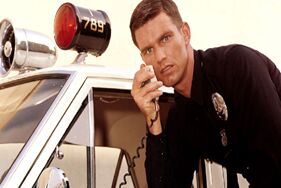美剧里的警匪片符合现实吗?
|
A few years ago, I had the honor of traveling through Accra, Ghana. As I rode down a main avenue, images grabbed my attention. On one side of the street, African children wearing rags played in an open sewer. On the other side of the street, there was a towering billboard advertisement featuring palm trees, a beach, and a Caucasian man lowering sunglasses from his eyes. The ad was for actor David Caruso, starring in the television series CSI: Miami. The dichotomy of images was a reminder not only of the international reach of American pop culture, but of the specific influence of TV police procedurals.
In Hollywood, I'm a rare creature. A black man who has made a career, in part, writing for network police shows, having eventually created my own show, S.W.A.T., for CBS. For me, writing television can never simply be about entertainment. Many people in Hollywood have a fear of being didactic, preaching messages that risk making an audience feel uncomfortable. But, in the shadow of George Floyd's death at the hands of Minneapolis Police Officers, a question persists—how are the shows we are writing contributing to perceptions of the justice system, class, race, and the image of black men? I look at this, not as a creative burden, but a necessary responsibility. Traditionally, the domain of TV police procedurals has been as morality plays, where clear lines are drawn. The past 60 years have seen shows like Dragnet, The Untouchables, and Adam 12 establish a formula where, within an hour of story, good lawmen, also known as square-jawed white cops, defeat bad guys, often known as poor people of color. This stark clarity, indulging the idea of the hero cop, often provides a sense of satisfaction for some viewers in an otherwise complicated world. This can make for wildly popular entertainment, but also risks encouraging fantasies to be perceived as reality rather than idealized comfort food. People watch TV to see heroes, but how are we defining who a hero is? For people of color, especially black people, the viewing experience is complex. |









